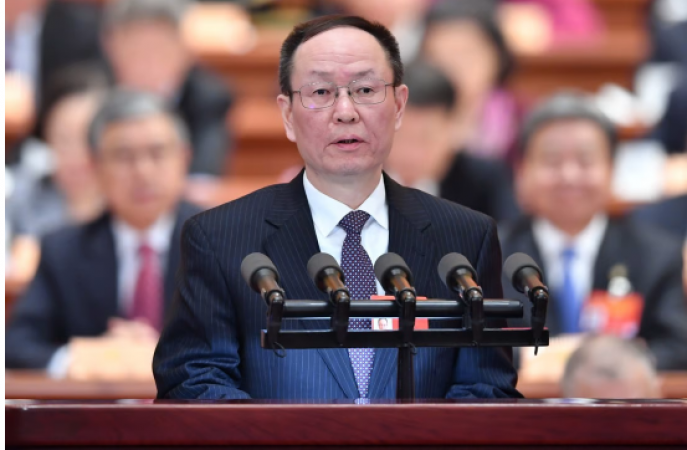
Beijing: Deepening market-oriented reforms is crucial for China to avoid falling into the "middle-income trap" and get its economy back on track, a Chinese government advisor has said.
And according to Wang Yiming, vice-chairman of the China Center for International Economic Exchange, the world's second-largest economy's growth rate could possibly exceed 5% in 2019.
But for that to happen, he told a conference organized by the Hong Kong Institute for Monetary and Financial Research on Wednesday, disruptions brought by the coronavirus must be minimized or eliminated, government policies to boost the economy must be effective, and Opening up should be expedited to improve and boost market confidence.
Also read: Will the sustainability goals of financial firms be the next to perish as rates rise?
China's current rate of economic growth is lower than it could be. Wang cautioned that this could have some structurally oriented medium to long-term effects.
“For example, there are changes in the micro landscape, such as a shift towards short-term business decisions, a decrease in appetite for risky investments, and an increase in cautious household consumption.
"Remedial action on all of these takes time."
Wang's comments add to recent concerns publicly expressed by other government advisers, some of whom stressed the urgent need for Chinese economic policymakers to realize the country's full growth potential.
While the pace of recovery is still slow, Wang, who also holds the position of vice chairman of the Development Research Center of the State Council, said getting the economy back on track is "very important".
Also read: IMF: China's zero-Covid policy needs to be "recalibrated" to help the economy
China's economy grew by 3.9% in the third quarter of this year, up from 0.4% in the second quarter. Additionally, the economy grew only 3% in the first three quarters of the year, which was below market expectations.
China's gross domestic product (GDP) is forecast to grow by 4.5% in 2023, according to economists at investment banks Goldman Sachs and UBS. Nomura's forecast was slightly more cautious at 4.3%, while the Morgan Stanley team was more upbeat at 5%.
Wang said that if China wants to achieve its target of at least US$20,000 per capita GDP by 2035, the annual GDP growth rate should not be less than 4.73 percent.
However, Wang said this could be "very difficult" to achieve given the country's growing population. He said that China is in the process of transition from middle to high income, which is a unique stage of instability, and the country may fall into the middle income trap when economic growth stabilizes. China's per capita GDP was over US$10,000 two years ago.
Wang said the solution is to boost productivity and unleash market forces so as not to find ourselves in a predicament where growth slows and a country is unable to generate further economic momentum or grow wealthier. .
They will probably not be met by countercyclical adjustment policies alone. To achieve this, there is a need for deep reforms and opening up, he added.
China should prioritize reforms that are market-oriented in the areas of labor, land, capital, technology and data.
He cited the example of reforming the hukou household registration system, which restricts access to public services based on the holder's birthplace, by providing basic public services to rural migrants relocating to cities.
He claimed this would free up 300 million people to spend more. Wang said boosting consumption is "particularly important" for China's economy to recover, especially in light of the fact that a slump in global demand has hit exports and manufacturing investment.
Retail sales in China grew by 0.6% in the first 10 months of 2022, but decreased by 0.5% in the last month.
In October, China's exports fell 0.3% compared to the same month last year, after a 5.7% increase in September.
Also read: Why a US-China truce is so desperately needed in Southeast Asia
Over the past three years, several steps have been taken to protect 160 million market participants, and according to Wang, the recovery of production is clearly better than consumption.
Therefore, if consumption is not encouraged and exports decline, it will be challenging to maintain a balance between the supply and demand ends of the economy.